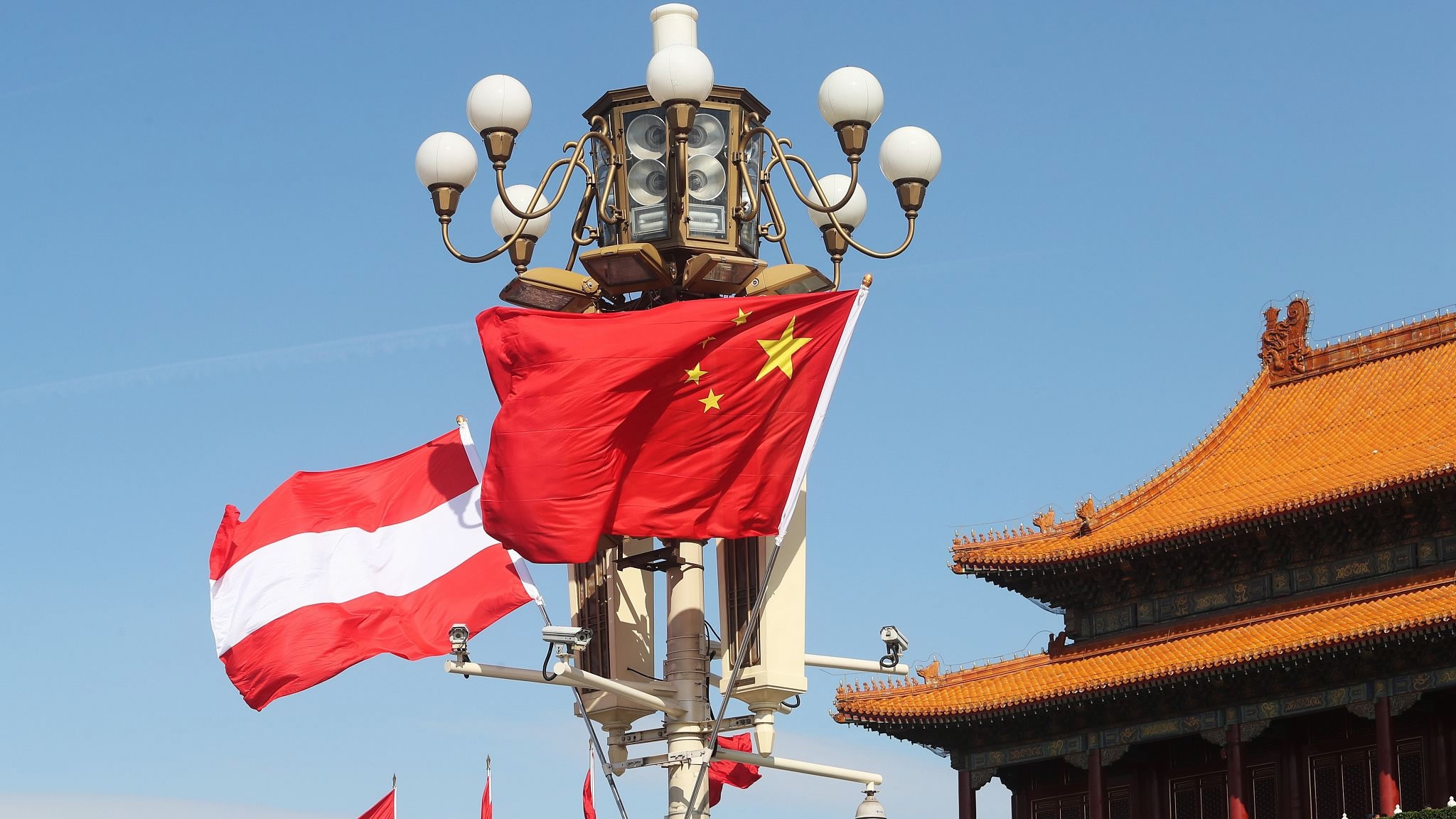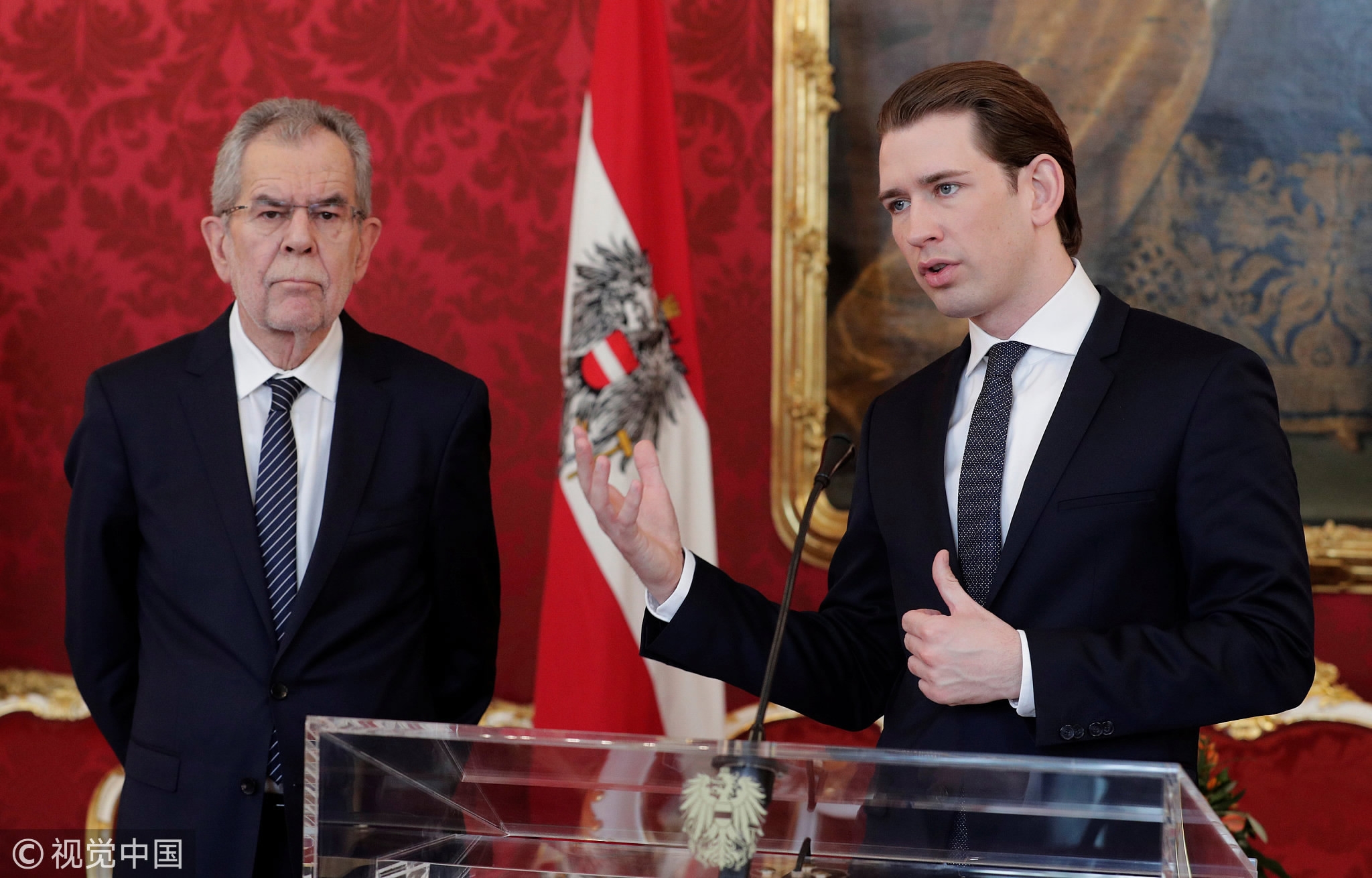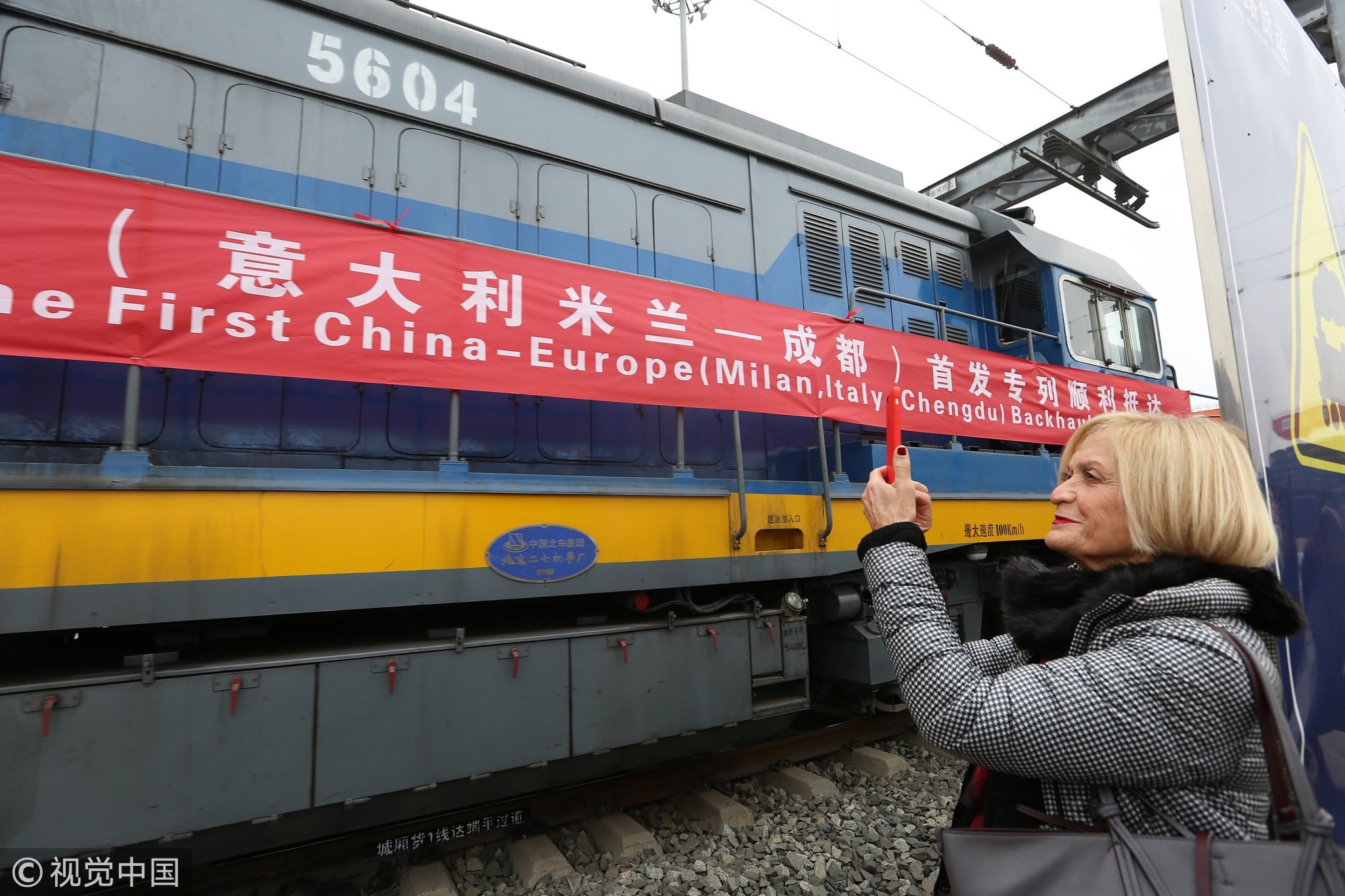
Opinions
16:01, 08-Apr-2018
Opinion: In historic visit, Austria forebodes closer China-Europe trade ties
By Wang Xiaonan

An all-star cast arrived in Beijing on Saturday, as the Austrian heads of state and government brought their largest economic mission to China. The historic visit derives from their bilateral flourishing ties and bodes well for future trade relations between China and wider Europe.
The joint visit by Austrian President Alexander Van der Bellen and Austrian Chancellor Sebastian Kurz, accompanied by a 250-strong delegation of business, culture, environment, science and research, is the first of its kind in modern Austrian history. After a short stay in Beijing, they will head to southernmost China's Hainan for the Boao Forum for Asia annual conference and then land in Chengdu, an economic hub in southwest China.
China has been Austria's largest trading partner in Asia since 2003 and currently the fifth largest around the world. Meanwhile, Austria is the sixth biggest investor in China among 19 Eurozone countries, with more Chinese enterprises taking stakes in the Alpine country's hi-tech, apparel and manufacturing sectors.

Austria's President Alexander Van der Bellen and Chancellor Sebastian Kurz address the media on a planned visit to China, in Vienna, Austria, March 19, 2018. /VCG Photo
Austria's President Alexander Van der Bellen and Chancellor Sebastian Kurz address the media on a planned visit to China, in Vienna, Austria, March 19, 2018. /VCG Photo
In its five-year plan for 2017-2022, the new Austrian coalition government put cooperation within the Belt and Road framework high on their agenda. It's set to develop Vienna into a transportation hub for the wider European continent. The city, known as the capital of classical music, boasts an optimal geographical position. As a transportation nexus that offers the most flights to Eastern European destinations, it's also home to the Central and Eastern European headquarters of over 200 global conglomerates, according to Martin Glatz, head of the Beijing office of Advantage Austria, the trade promotion organization of the Austrian government.
Now Vienna is eyeing more business opportunities given its highly skilled workforce, easy access to the booming markets in Eastern and Southeastern Europe, and an investor-friendly tax system compared with other European countries. Beijing has become its major target in further boosting its economic growth and propping up free trade in an increasingly conservative Europe. Now that the China-Europe land-sea express route is expected to extend to Austria, the country will likely play a key role in bringing closer China-Europe ties.
In Central and Eastern Europe, Austria manifests an even stronger presence than that of other, larger European countries, said Glatz, also Commercial Counsellor at the Austrian embassy in Beijing. And China's Belt and Road Initiative helps enhance its position as the center of Europe, not only geographically but also economically. The thriving cooperation between the Asian powerhouse and the Alpine republic is expected to draw Beijing and Europe – a region where trade protectionism has resurged – closer.

The first train on the China-Europe express route connecting Chengdu and Milan returned to a port in Chengdu, southwest China's Sichuan Province, on December 17, 2017. The train passes Austria and several other European countries. /VCG Photo
The first train on the China-Europe express route connecting Chengdu and Milan returned to a port in Chengdu, southwest China's Sichuan Province, on December 17, 2017. The train passes Austria and several other European countries. /VCG Photo
Nonetheless, all this will not come easily. Given starkly different political systems and economic development paths, China and most European countries have a raft of controversies. With the increase of trade and investment between China and Europe, the calls for creating a level playing field for business are becoming increasingly urgent. This phenomenon has been noted by Advantage Austria.
There are 920 branches of Austrian companies currently based in China. They are glad to see China's endeavor to ratchet up its market reform but they are also confronted with challenges related to "competition, transparency and rule of law," Mr. Glatz added.
But they are upbeat about the future Chinese market which is undergoing profound reforms shifting toward a more open economy. According to a survey undertaken by the Advantage Austria, Austrian businesses that have already invested in China view their prospects positively. The growing opportunities for cooperation with their Chinese counterparts in third countries are also contributing to this inspiring sentiment.
It's expected that the six-day trip will not only yield some 30 lucrative trade agreements but streamline tedious procedures for Austrian and European businesses to facilitate their operations in China.
And both as advocates of trade liberalization and multilateralism, they are hoping to usher in a new era of China-European cooperation amid economic stagnation and political turmoil across several major European nations.

SITEMAP
Copyright © 2018 CGTN. Beijing ICP prepared NO.16065310-3
Copyright © 2018 CGTN. Beijing ICP prepared NO.16065310-3